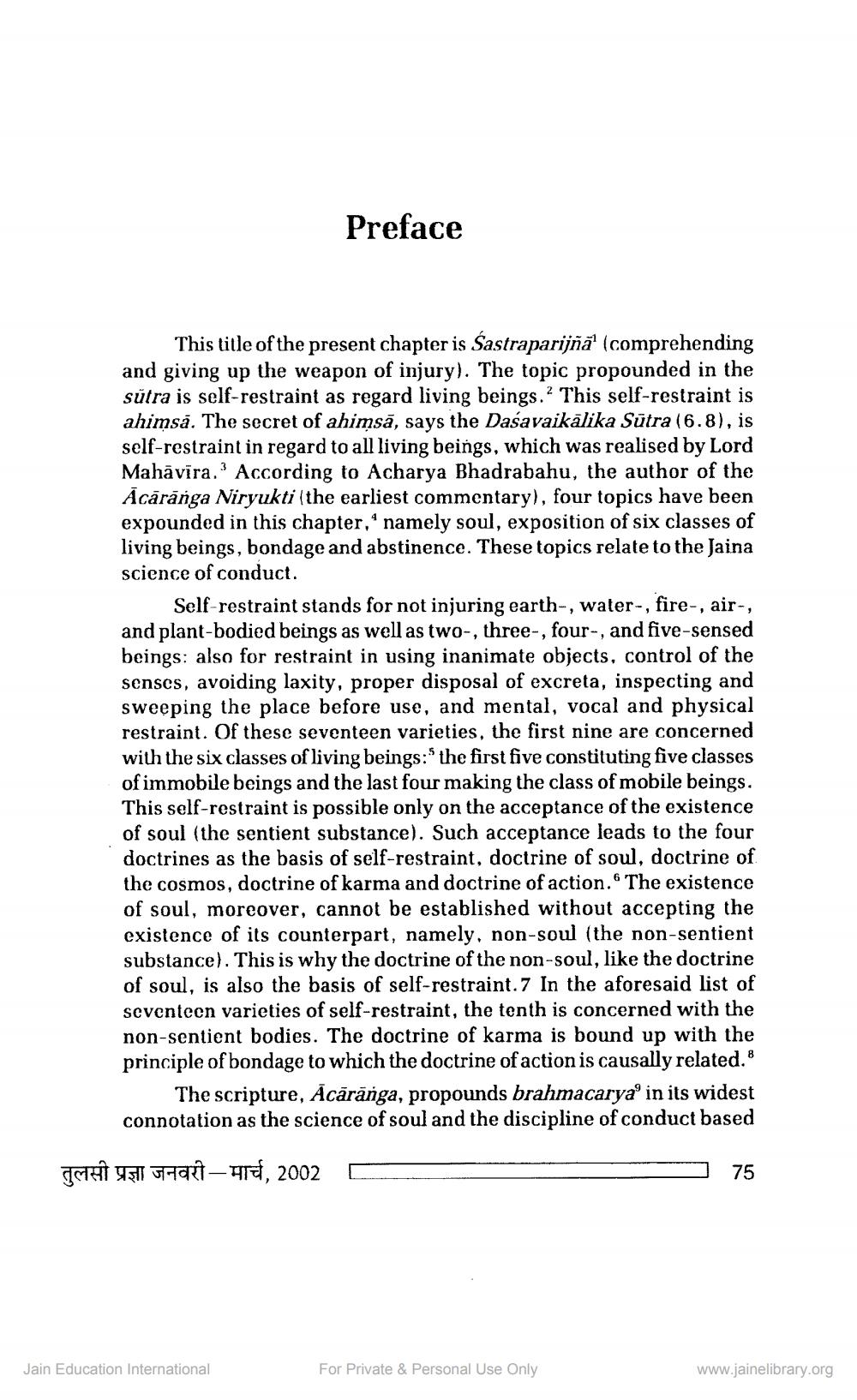________________
Preface
This title of the present chapter is Sastraparijñā' (comprehending and giving up the weapon of injury). The topic propounded in the súlra is self-restraint as regard living beings.? This self-restraint is ahimsă. The secret of ahimsā, says the Dasavaikälika Sūtra (6.8), is self-restraint in regard to all living beings, which was realised by Lord Mahāvīra. According to Acharya Bhadrabahu, the author of the Ācāranga Niryukti (the earliest commentary), four topics have been expounded in this chapter,' namely soul, exposition of six classes of living beings, bondage and abstinence. These topics relate to the Jaina science of conduct.
Self-restraint stands for not injuring earth-, water-, fire-, air-, and plant-bodied beings as well as two-, three-, four-, and five-sensed beings: also for restraint in using inanimate objects, control of the senscs, avoiding laxity, proper disposal of excreta, inspecting and sweeping the place before use, and mental, vocal and physical restraint. Of these seventeen varieties, the first nine are concerned with the six classes of living beings:' the first five constituting five classes of immobile beings and the last four making the class of mobile beings. This self-restraint is possible only on the acceptance of the existence of soul (the sentient substance). Such acceptance leads to the four doctrines as the basis of self-restraint, doctrine of soul, doctrine of the cosmos, doctrine of karma and doctrine of action. The existence of soul, moreover, cannot be established without accepting the existence of its counterpart, namely, non-soul (the non-sentient substance). This is why the doctrine of the non-soul, like the doctrine of soul, is also the basis of self-restraint. 7 In the aforesaid list of seventeen varieties of self-restraint, the tenth is concerned with the non-sentient bodies. The doctrine of karma is bound up with the principle of bondage to which the doctrine of action is causally related.
The scripture, Ācārānga, propounds brahmacarya' in its widest connotation as the science of soul and the discipline of conduct based
A
UF GHORT-HTET, 2002
-
75
Jain Education International
For Private & Personal Use Only
www.jainelibrary.org




